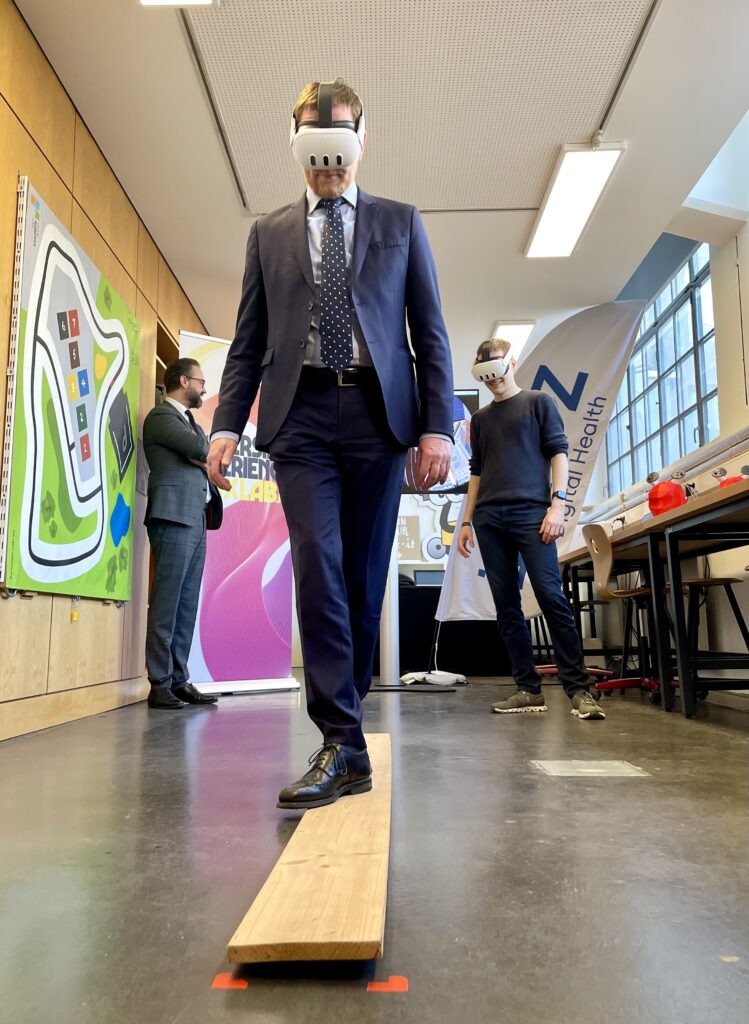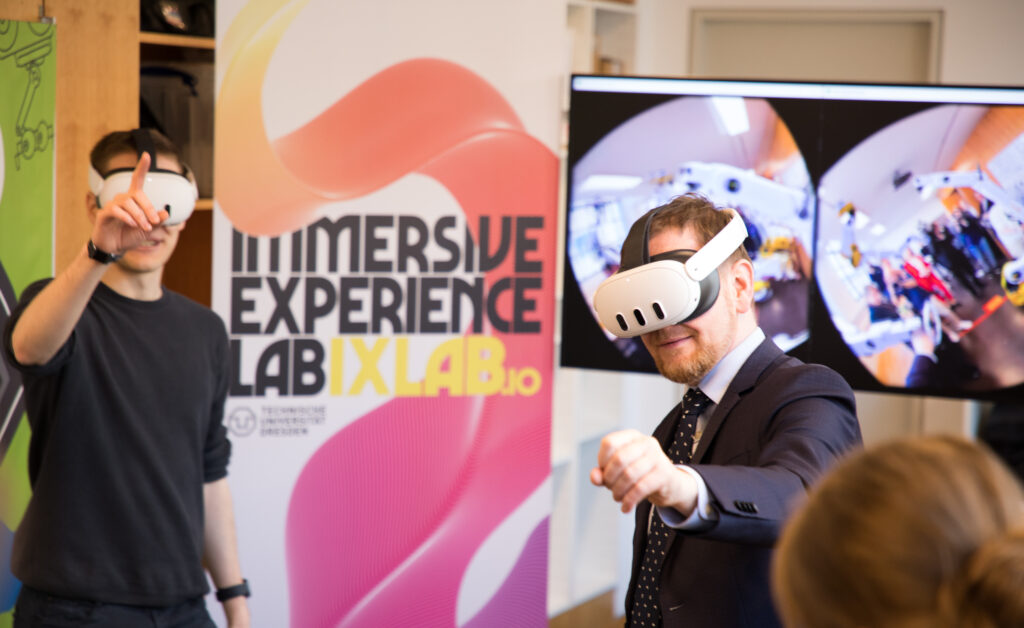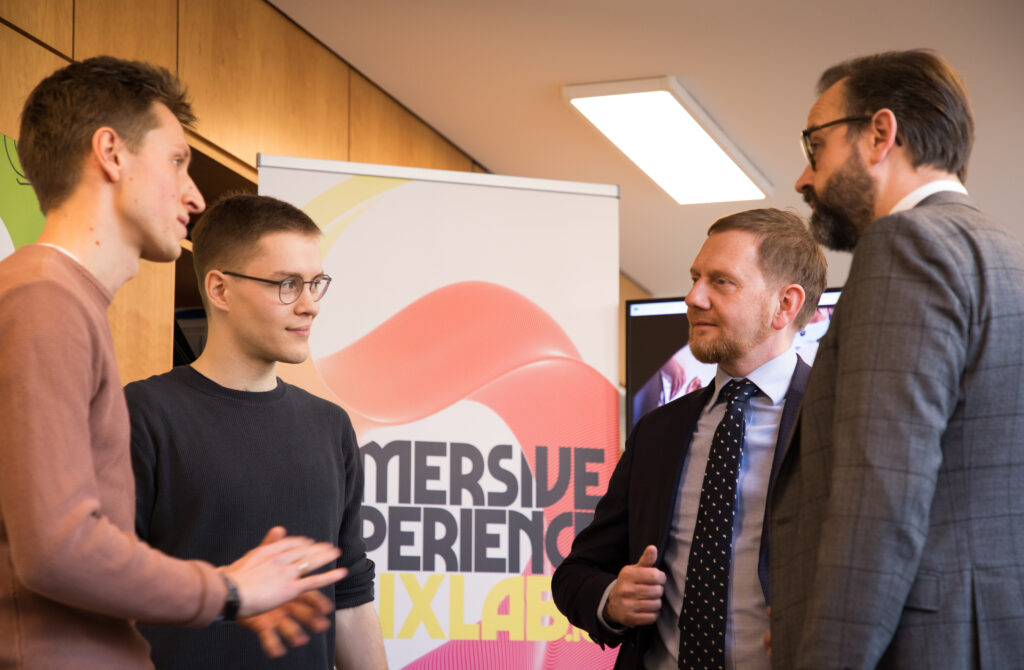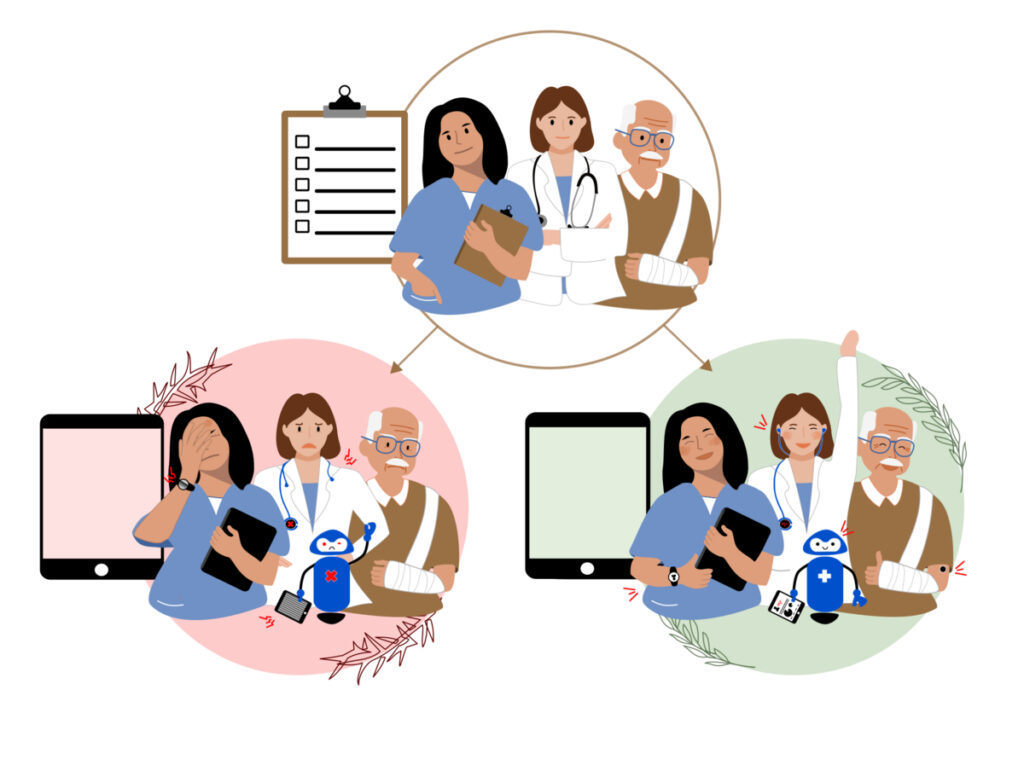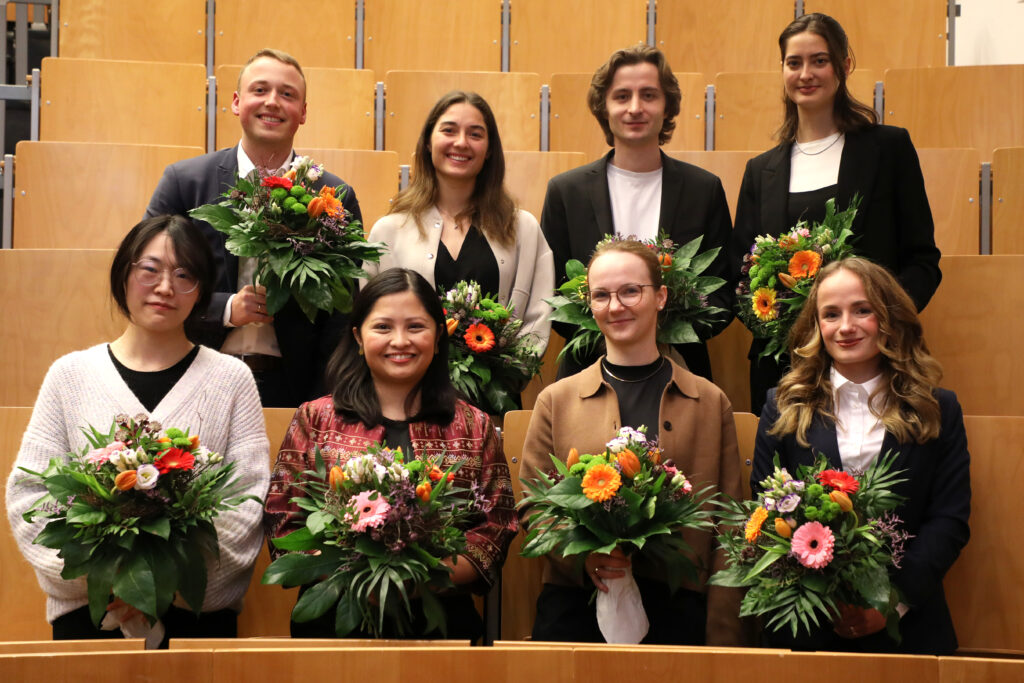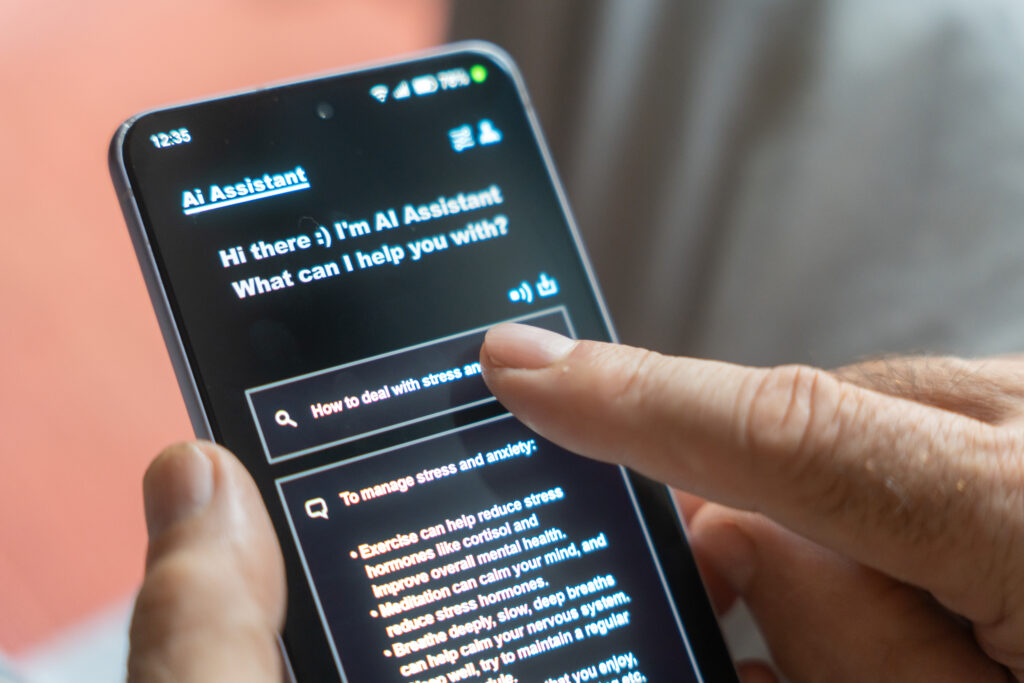During the first saxon science Festival SPIN2030 the VRAD research team explained visitors how a mixed reality scenario can help to improve therapies for anxiety disorders
8.000 visitors
at SPIN2030
VRAD team showcasing their project
The Technische Sammlungen Dresden welcomed over 8,000 visitors during the SPIN2030 science festival on 8th and 9th March. More than 50 scientific institutions, including all universities and non-university research institutions from Saxony, presented their current research. The EKFZ for Digital Health was also present with the VRAD team showcasing their project on treating anxiety disorders using virtual and mixed reality scenarios. Many people visited the stand and showed great interest. Brave visitors had the opportunity to confront their fear of heights or spiders using the VR glasses. The VRAD project is a joint effort between the Institute of Clinical Psychology and Psychotherapy and the Immersive Experience Lab of the Faculty of Computer Science, with financial support from the EKFZ for Digital Health. Saxon Prime Minister Michael Kretschmer also visited the stand and experienced a virtual view down from the skyscraper.
We are proud of the bright minds from all over the world who are bringing the Free State forward and contributing to the positive development with new findings, inventiveness and innovation. I am delighted that the SPIN2030 science festival will showcase all of the performance and excellence and that we will generate even more enthusiasm for Saxony’s scientific landscape.
Michael Kretschmer
Saxon Prime Minister
Our scientific landscape is incredibly diverse and exciting. I am always impressed by what is happening here at the highest level in research and teaching. (…) I am very grateful to all the institutions and their researchers for their contributions.
Sebastian Gemkow
Saxon Science Minister
SPIN2030 allowed visitors to experience a diverse range of research topics in the Free State. Children and adults alike were amazed by the two-day event. The event integrated various stands, exhibits, and projects into the permanent exhibitions of the Technische Sammlungen Dresden. It featured workshops, discussions with scientists , quizzes, and science shows and a Science Slam. Additionally, the TU Dresden podcast “YOU ASK WE EXPLAIN” was a guest.
Campaign SPIN2030 | Saxony – Land of Science
With the campaign “SPIN2030. Saxony – Land of Science” campaign, the Saxon Ministry of Science aims to communicate the diversity, excellence and attractiveness of Saxony as a research location to a wide audience. Universities, universities of applied sciences, the Berufsakademie Sachsen and non-university institutions such as the institutes of the Fraunhofer Gesellschaft and Max Planck Society, the Leibniz Association, various Helmholtz centers and many other state-funded research institutions from across the state are taking part.
More News
Carl Gustav Carus Awards for three EKFZ affiliated young researchers
Virtual companions, real responsibility


